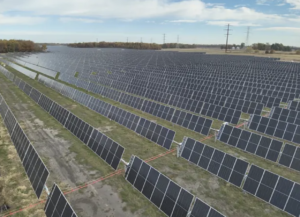The American Clean Energy and Security Act, now bound for debate on the House floor after clearing the House Committee on Energy and Commerce, contains four key changes that will secure the coal industry and thousands of jobs that coal provides, U.S. Rep. Rick Boucher (D-Va.) said Friday.
“The regulation of greenhouse gas emissions by the federal government is inevitable,” Boucher said in a statement, noting that the Supreme Court had declared carbon dioxide a pollutant and required the Environmental Protection Agency (EPA) to regulate the emissions of the greenhouse gas.
“Our legislation will supersede the EPA’s effort and preempt EPA from regulating CO2 in any manner inconsistent with the provisions of the legislation,” he said. “Virtually all interested parties, from the business community to environmental groups would prefer to have the regulation written by Congress than by EPA.”
Among the key provisions that would “protect the coal industry, coal related jobs and to keep electricity prices affordable in regions such as Southwest Virginia where most … electricity is produced by burning coal” is a proposal to provide assured federal funding of $1 billion annually for “rapid development” of carbon dioxide capture and storage (CCS) technologies, Boucher said.
Experts have observed, he claimed, that the $10 billion amassed over a 10-year period would enable “available, affordable and reliable carbon dioxide separation and storage technologies by 2020.” This would “assure that coal will continue to be America’s primary fuel for electricity generation,” he said.
Boucher also said he had asked Energy and Commerce Committee Chair Henry Waxman (D-Calif.) to include in the legislation a special fund of between $75 billion and $100 billion—the exact value to be determined by greenhouse gas emission allowance prices—to assist with the cost of deploying CCS technologies when they become available.
The third recommendation Boucher said would benefit the coal industry was to provide greenhouse gas emission allowances for free to emitting entities, rather than requiring allowances be bought at government-sponsored auctions. “Free allowances reduce the overall cost of the program helping to secure the role for coal and helping to keep electricity prices affordable in regions such as ours where most of the electricity is coal fired,” he said. “That provision is also a part of the legislation approved by the committee.”
Finally, to ensure utilities could continue coal-fired generation until 2020—when CCS is expected to become commercially viable—the proposed law makes available for purchase by emitters each year 2 billion tons of carbon dioxide offsets.
“In the typical case, instead of reducing emissions from coal-fired power plants at the plant site, the electric utility would pay for the planting of trees, the preservation of existing tropical rain forests or invest in domestic agriculture in a way which would reduce carbon dioxide emissions from farming operations,” Boucher said.
“The availability of these offsets are the key to enabling electric utilities to continue using coal as they are today while at the same time meeting the carbon dioxide reduction requirements contained in the legislation prior to 2020.”
After 2020, Boucher anticipated that the utilities would begin using carbon dioxide and sequestration technologies.
H.R. 2454, has been referred to at least eight other House committees: Foreign Affairs, Financial Services, Education and Labor, Science and Technology, Transportation and Infrastructure, Natural Resources, Agriculture, and Ways and Means. Several members of these committees have discussed possible changes to the bill. It remains unclear whether the bill will reach the House floor this year.
Source: U.S. Rep. Rick Boucher (D-Va.)








